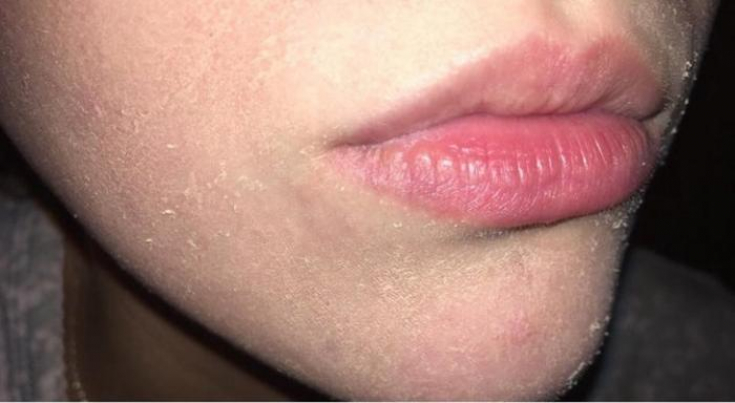People who do not have enough vitamin A in their diets are more susceptible to skin infections, but it is not clear how this vitamin affects skin immunity.
New research sheds some light on this mystery by identifying a previously unknown, bacteria-killing protein in the epidermis that requires the vitamin to work.
In the article estet-portal.com you can read in detail the results of a study that investigates the role of vitamin A in inducing the expression of a protective antibacterial protein in the skin.
- Bacteria-killing protein needs vitamin A to function
- Compensation of vitamin A deficiency as an effective method of therapy
- Lights up on the mystery of the effectiveness of retinoids
- Vitamin A Deficiency: A Further Research Course
Bacteria-killing protein needs vitamin A to function
Researchers have found that one protein from the α family of resist-like molecules; (resistin-like molecule α) — RELMα — acts as an antibiotic to quickly kill bacteria. Vitamin A stimulates both RELMα, which is produced by keratinocytes and sebocytes, and the corresponding RELM family protein called resistin.
RELMα is the first example of an antimicrobial protein that requires vitamin A for its antibacterial activity.
This finding provides us with important clues to how the skin is protected from infection and how skin protection is regulated by diet.
Dermatologists use a synthetic vitamin A called retinoid to treat acne, psoriasis and other skin conditions, although how these drugs affect the skin's immune system has long been a mystery.
Compensation of vitamin A deficiency as an effective method of therapy
Leather — it is the largest organ of the human body, the task of which is to protect us from infection.
Vitamin A and its derivatives stimulate cellular and humoral immunity, affect the division of immunocompetent cells, the formation of specific factors (immunoglobulins) and nonspecific protection (interferons) of the body as a whole. However, its effect is dose dependent.

Impairment of the immune system of the skin leads to infection. Skin infections caused by streptococci and staphylococci are one of the most common reasons people go to the emergency room. RELMα, regulated by vitamin A, has an antimicrobial effect on bacterial strains such as Streptococcus pyogenes and Staphylococcus epidermidis by destroying their cell membrane.
Read the most interesting articles in Telegram!
Human tissue and mouse experiments highlight the previously underestimated link between nutrition and innate skin immunity, confirming why vitamin A derivatives are effective treatments for skin conditions.
Sheds light on the mystery of the effectiveness of retinoids
In addition to revealing RELMα's unique function, namely its requirement for vitamin A to kill bacteria, the study showed that mice fed a vitamin A deficient diet suffered from RELMα deficiency.
Researchers also found that mice lacking RELMα were more susceptible to infection and had different kinds of bacteria on their skin compared to typical mice.
Given how often retinoids are used in dermatology, the implications of the results are potentially majestic.
Metabolism: Replacing Obesity with Slimness
The skin is an important link between the person and the environment and must protect him from infection and inflammation. We are just beginning to understand how the microbiome (a term for the population of bacteria living with the human body) influences skin diseases such as psoriasis and acne. The researchers' work is helping to identify the molecules that the skin uses to create a healthy relationship between the microbiome and hosts.
Vitamin A Deficiency: A Future Course of Research
RELMα, a small secreted cysteine-rich protein expressed by epidermal keratinocytes and sebocytes, has been shown to serve as an antimicrobial protein that is required by the skin to resist infection. According to the results of research, it became clear that RELMα regulates bacterial colonization of the skin, and the formation of this protein directly depends on the amount of vitamin A supplied with food. Remember that vitamin A is a fat soluble vitamin.
The best skin vitamins: the perfect preparation for aesthetic treatments
Given this fact, the food should not only be rich in vitamin A, but also saturated with healthy fats, and the amount of bile secreted should be sufficient to emulsify them. An antimicrobial effect was also observed when using a synthetic analog of vitamin A – isotretinoin. It acts similar to the RELMα manner, protecting the skin from infection.

This study gives us a better understanding of how diet affects the skin's ability to defend itself against bacterial infection and be more resistant to foreign agents, but more research is needed to determine how these findings would affect patients with inflammatory skin conditions. such as acne and psoriasis. We should not forget about the dose-dependent effect of vitamin A and its analogues.
More useful and interesting information on our channel on YouTube:






Add a comment